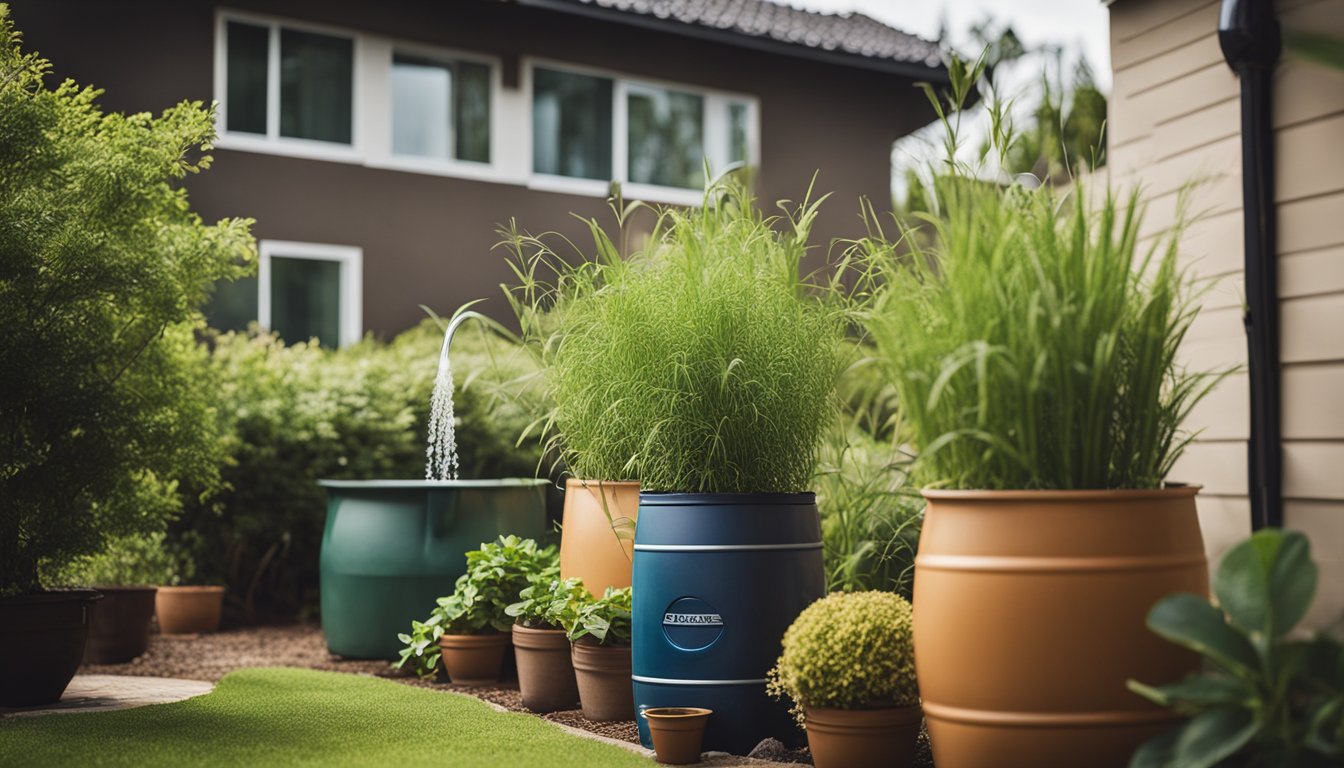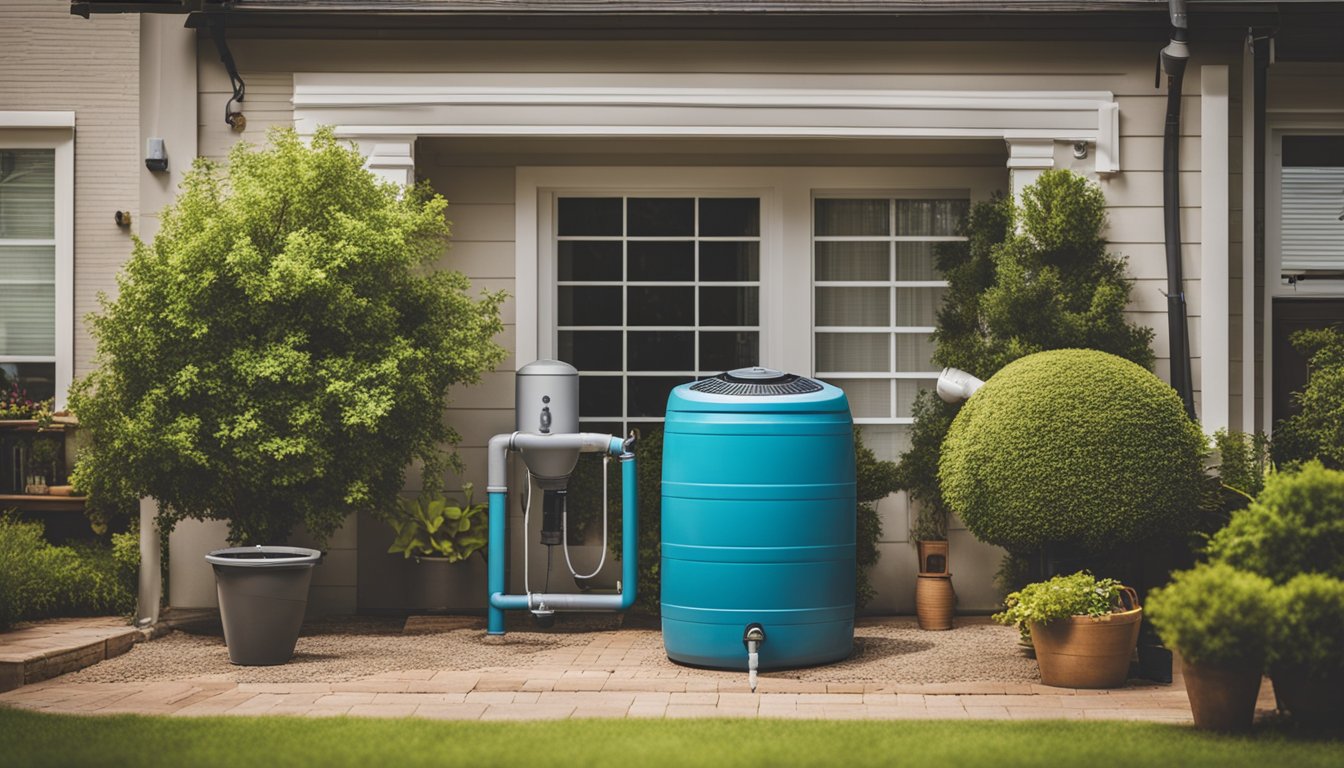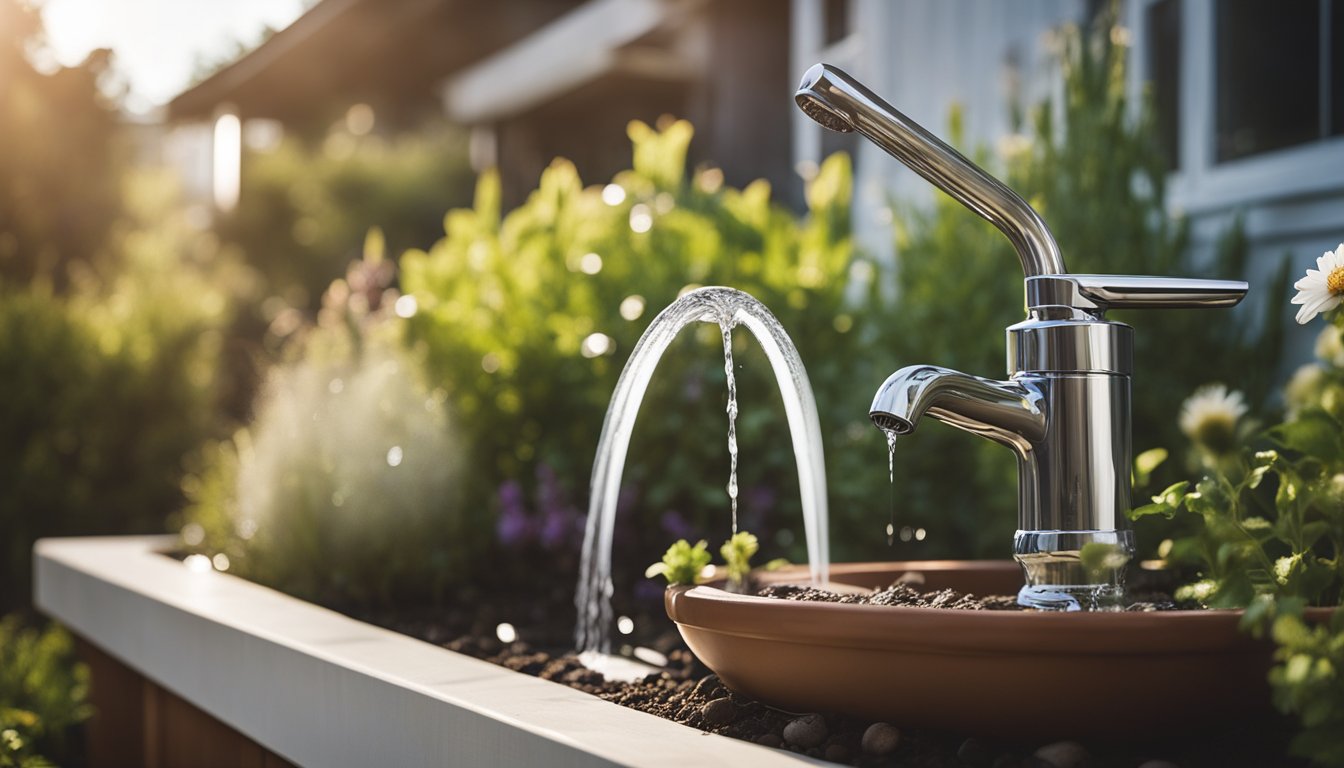Late updated: 04 Nov 2024 14:11
Written by: Eleanor Hartman
How To Reduce Water Usage In UK Households: Practical Tips for Conservation
Reducing water usage in UK households is more pressing than ever as climate change and population growth stretch resources thin. The environmental impact of excessive water consumption also contributes to climate-related challenges. By adopting mindful water-saving practices, we not only cut our bills but also play a part in preserving our planet's future.

Simple changes in our daily habits can lead to significant savings. Switching from baths to shorter showers is an effective way to conserve water and energy. Additionally, modern dual-flush toilets significantly reduce the volume of each flush, making them an easy choice for those looking to improve water efficiency.
As more households become aware of their water consumption, practical tips like installing water-saving devices or reusing greywater are gaining popularity. Such measures, combined with a public consultation led by the UK Environment Agency, can create a meaningful impact on our water use habits.
Key Takeaways
- Mindful daily habits can significantly impact water and energy savings.
- Opting for modern fixtures like dual-flush toilets enhances water efficiency.
- Public awareness and consultation drive better water use practices.
Understanding Water Use and Challenges in UK Households
Water use in UK households is influenced by several factors, including the demand for fresh water and the impacts of climate change. These issues create an intricate relationship with water supply, carbon emissions, and public awareness.
The State of Water Supply and Demand
In the UK, the balance between water supply and demand is crucial. Many households are metered, turning monitoring into a personal responsibility. This approach encourages efficient consumption. The Environment Agency recognises that population growth and urbanisation increase demand pressures on existing resources. Water utilities are tasked to ensure that supply meets demand without compromising resource sustainability. Their strategies often involve implementing technologies that maximise resource use and minimise waste.
Climate Change and Its Impact on Water Resources
Climate change poses significant threats to water resources in the UK. Increased frequency of extreme weather events, such as heavy rainfall and prolonged droughts, stresses the current infrastructure. Rising temperatures also heighten evaporation rates, reducing fresh water availability. These changes necessitate adaptive measures in water management, crucial for mitigating potential shortages. Our ability to adapt and respond decisively during these conditions forms the cornerstone of future water resource security.
Exploring the Link Between Water Use and Carbon Footprint
Water consumption is closely linked to our carbon footprint. The energy used to treat and transport water contributes significantly to carbon emissions. By reducing water usage, we can directly cut down on this energy demand, lowering our carbon impact. Water-efficient technologies, like low-flow showerheads and heat pumps, support this initiative, providing practical ways to reduce both water and energy consumption. Our focus should be on driving innovation in these technologies to get results.
Water Shortages and Public Awareness
Public perception and awareness play a pivotal role in addressing water shortages. Increased public awareness can lead to more responsible water consumption behaviour. Campaigns by water companies often highlight the importance of conserving water, particularly during peak periods of use. By understanding the water shortages and adopting conservation habits, individuals contribute to sustaining water supplies. Our collective action determines how effectively we deal with these imminent challenges, making public engagement and education essential.
Practical Ways to Reduce Water Usage in the Home

Effective water management in our homes not only conserves water but also reduces energy bills and supports environmental sustainability. We can achieve this through the adoption of water-efficient fixtures, smart behavioural changes, innovative technology, and mindful garden practices.
Efficient Water Fixtures and Appliances
Implementing efficient fixtures and appliances can significantly decrease water usage. Installing low-flow shower heads and tap aerators helps reduce water flow without compromising performance. Modern washing machines and dishwashers with high water efficiency ratings use less water while delivering optimal cleaning.
It's essential to check for leaky taps or pipes regularly and fix them without delay, as these can waste significant amounts of water over time. Considering a water meter can also help us monitor usage and identify areas for improvement.
Behavioural Changes to Save Water
Our habits play a crucial role in water conservation. Simple actions like turning off the tap while brushing teeth or washing dishes can save a substantial amount of water. Limiting showers to four minutes or less is an effective practice. Utilizing a bowl for washing up instead of a running tap is another efficient method.
Let us not forget the impact of fixing dripping taps. Even a slow drip can waste litres of water daily. Encouraging all household members to be conscious of their water use fosters a water-saving culture in our homes.
Harnessing Technology and Innovation
Advancements in technology offer practical solutions for water saving. Smart home systems can detect leaks early, preventing unnecessary water waste. Installing water-saving devices, like dual-flush toilets, optimizes water use when flushing.
Capturing rainwater through water butts offers a sustainable way to use water for non-potable purposes, like garden watering. We must also consider new homes built with integrated water-efficient technologies. These homes have features like greywater recycling systems that reduce clean water usage and promote waste water reuse.
Garden and Outdoor Water Saving Techniques
In our gardens, using a watering can instead of a hosepipe prevents over-watering, which can be wasteful. Mulching around plants retains soil moisture, reducing the need for frequent watering. We can also plan for garden designs that incorporate drought-resistant plants.
During periods of hosepipe bans, adapt by collecting rainwater for garden use. Regularly check for leaking outdoor taps and ensure they are promptly repaired. Through these practices, we can conserve water while maintaining a healthy and attractive outdoor space.
Frequently Asked Questions

In UK households, conserving water involves using efficient practices and devices. By focusing on high-consumption areas like kitchens and gardens, it's possible to significantly reduce water use. We'll explore various methods and answer some common questions about water conservation strategies.
What are the most effective methods for conserving water in British homes?
To conserve water, we should start by using a washing-up bowl instead of running taps. Replacing old toilets with low-flush models can also substantially cut water usage. Additionally, only running dishwashers and washing machines with full loads helps save water, making these simple changes essential for every home.
What domestic appliances consume the most water and how can their usage be minimised?
Washing machines and dishwashers are major water consumers. To minimise their usage, we can opt for appliances with higher efficiency ratings. It's also wise to operate these devices only when full and to select shorter cycles when possible. Adapting these habits makes a significant difference in water consumption.
In what ways can fixing leaks contribute to water conservation in UK households?
Even small leaks can lead to substantial water waste over time. By promptly fixing drips and leaks in taps and pipes, we can prevent unnecessary water loss. Installing leak-detection sensors and routinely checking for leaks are also important measures. These actions contribute significantly to our overall water conservation efforts.
How can residents in the UK adapt their gardening practices to reduce water consumption?
To reduce water use in gardening, we can collect rainwater in barrels for plant irrigation. Choosing native and drought-resistant plants also helps. Using mulch around plants retains moisture, reducing the need for frequent watering. These practices make gardens more sustainable and water-efficient.
What water-saving devices are available for UK households to install?
Numerous water-saving devices are available, such as low-flow showerheads and aerated taps. These can drastically reduce water usage without compromising performance. Other helpful tools include dual-flush toilets and tap regulators. Installing such devices can lead to significant water savings in our homes.
How does taking shorter showers impact overall water usage in the UK?
Reducing shower time can make a substantial impact on water use. By halving the duration of a typical shower, we can conserve a significant amount of water. This practice not only lowers our water bills but also contributes to broader environmental conservation efforts across the UK.